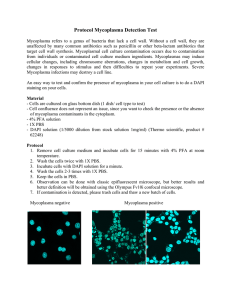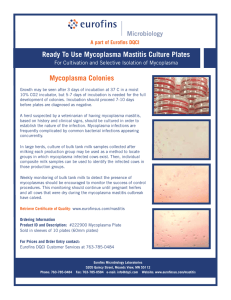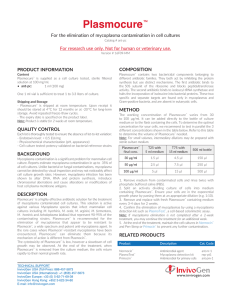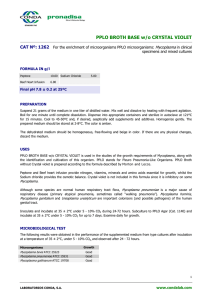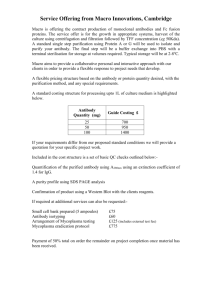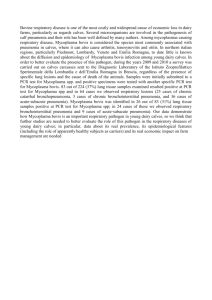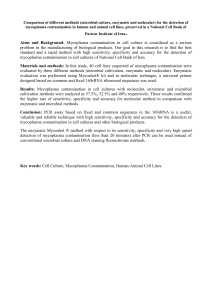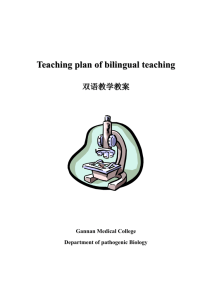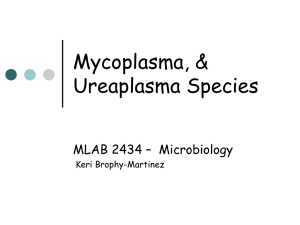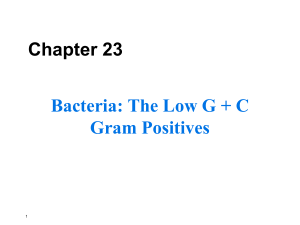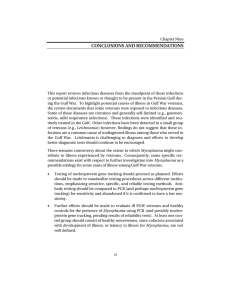Babajide Kolade Oluwadare Mycoplasma pneumoniae
advertisement
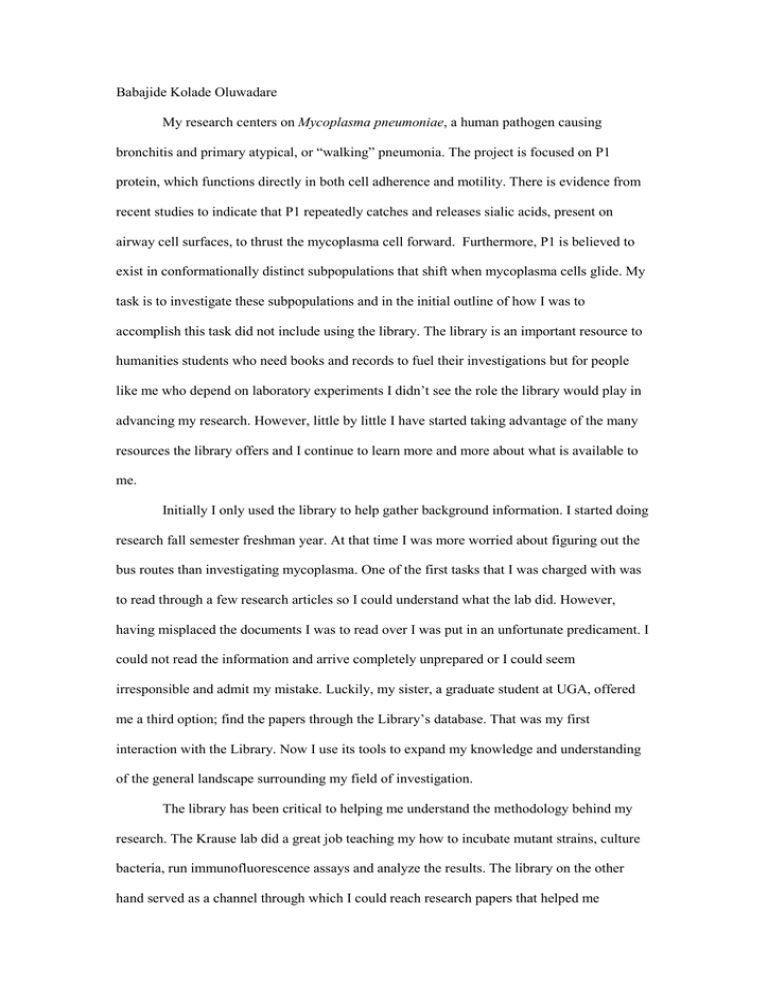
Babajide Kolade Oluwadare My research centers on Mycoplasma pneumoniae, a human pathogen causing bronchitis and primary atypical, or “walking” pneumonia. The project is focused on P1 protein, which functions directly in both cell adherence and motility. There is evidence from recent studies to indicate that P1 repeatedly catches and releases sialic acids, present on airway cell surfaces, to thrust the mycoplasma cell forward. Furthermore, P1 is believed to exist in conformationally distinct subpopulations that shift when mycoplasma cells glide. My task is to investigate these subpopulations and in the initial outline of how I was to accomplish this task did not include using the library. The library is an important resource to humanities students who need books and records to fuel their investigations but for people like me who depend on laboratory experiments I didn’t see the role the library would play in advancing my research. However, little by little I have started taking advantage of the many resources the library offers and I continue to learn more and more about what is available to me. Initially I only used the library to help gather background information. I started doing research fall semester freshman year. At that time I was more worried about figuring out the bus routes than investigating mycoplasma. One of the first tasks that I was charged with was to read through a few research articles so I could understand what the lab did. However, having misplaced the documents I was to read over I was put in an unfortunate predicament. I could not read the information and arrive completely unprepared or I could seem irresponsible and admit my mistake. Luckily, my sister, a graduate student at UGA, offered me a third option; find the papers through the Library’s database. That was my first interaction with the Library. Now I use its tools to expand my knowledge and understanding of the general landscape surrounding my field of investigation. The library has been critical to helping me understand the methodology behind my research. The Krause lab did a great job teaching my how to incubate mutant strains, culture bacteria, run immunofluorescence assays and analyze the results. The library on the other hand served as a channel through which I could reach research papers that helped me understand why I do what I do. That mutant strains must be incubated with penicillin because of a selective marker in the genome of those cells; or that mycoplasma must be incubated for a certain amount of time making sure the pH of the media is within a healthy threshold. The benefit of these resources were most apparent when I needed to understand why my procedures where not working. Going through papers and seeing if others had similar problems and looking at their procedure and comparing it to mine helped resolve issues fairly quickly. One of the features of search engines such as Medline or Web of Science is that they make it easy to find recent articles on certain topics. In the field of research staying up to date is essential because the purpose of any study is to create new knowledge, with the emphasis on new. With these features it is easy to see the direction others in a field are going and if anyone might be on track to “scoop” our findings. This was a problem when a paper was hinting at the subpopulations that I am focused on. Although it was in another species it is still cause for concern. The library has been such a great tool for me and I am just scratching the surface. There are so many facets that I am just now becoming aware of. Web of science has a reliable times cited feature. With this I can take one really good paper and turn it into 30 or so relevant ones. I can also use it as a majoring stick to see how relevant a paper is to the field. Google scholar has entered a new level of usefulness because of what I learned about how to enable the find it at UGA option and how to use their Google books option efficiently. What I am most excited about is endnote. This software turns a very tedious and often long process into a fluid intuitive function. It stores citation information and makes it readily available in several , interchangeable forms. I have been able to accomplish so much with what I already know, I am certain I will be able to do even more with what I learned, and I am excited to see what new feature, database or software I will encounter next.
